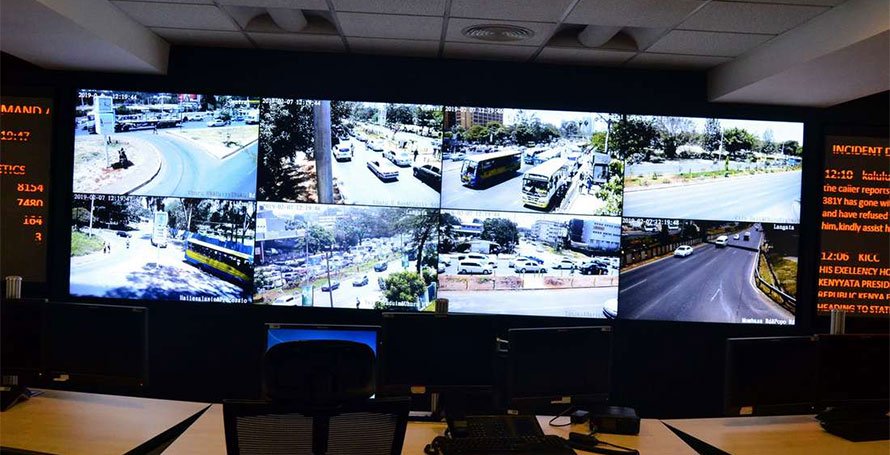A screen grab of the Integrated Command Communication Control Center (IC3) located at Jogoo House showing various surveillance cameras mounted all the city on February 7, 2019. PHOTO | FRANCIS NDERITU | NMG The Treasury has released Sh1.5 billion to the Interior ministry to be used to pay Safaricom after the giant telco threatened to disconnect a security and surveillance system it built on behalf of the National Police Service, parliamentary records reveal.
The National Assembly’s Budget and Appropriations Committee (BAC) said Safaricom had signalled it would disable the surveillance system over the unpaid bill, an outcome that could have derailed police pursuit of criminals through CCTV cameras mounted in Nairobi.
Under the terms of the security contract, Safaricom in 2014 started installing a Sh14.9 billion communication and surveillance system that is linked to police stations to help combat crime in Nairobi and Mombasa.
The State was expected to make quarterly payments to Safaricom to clear the bill, but the repayments have been trailing the agreed schedule.
Safaricom had completed construction of the system by March 2016 and the contract demanded that the government reimburse the firm quarterly over a period of five years. Parliamentary documents show that the government paid Safaricom Sh9.27 billion in 2016 and Sh881 million in the three years to end of June 2019, leaving a balance of slightly above Sh5 billion.
The Interior Ministry had in 2014 awarded Safaricom the tender to construct the communication and surveillance system as a smart tool to battle crime in the wake of numerous terrorist attacks. The project involved connecting 195 police stations in Nairobi and Mombasa to a high-speed, fourth-generation (4G) network to ease communication.
Safaricom was also mandated to supply the police with radio communication devices (GSM walkie-talkies fitted with SIM cards and cameras) that can take pictures at crime scenes and send real-time data to the command centre for analysis.
The first phase of the surveillance system went live in May 2015 and Safaricom said it had trained more than 10,000 police officers on how to operate and maintain the system. The contract also involved installation of tamper-proof, high definition and ultra-high definition CCTV cameras in Mombasa and Nairobi, which are connected to a national command and control centre. The national surveillance, communication and control system links all security agencies — military and police — electronically, making it easier to share information and direct operations.
Safaricom was also expected to receive coveted spectrum […]
